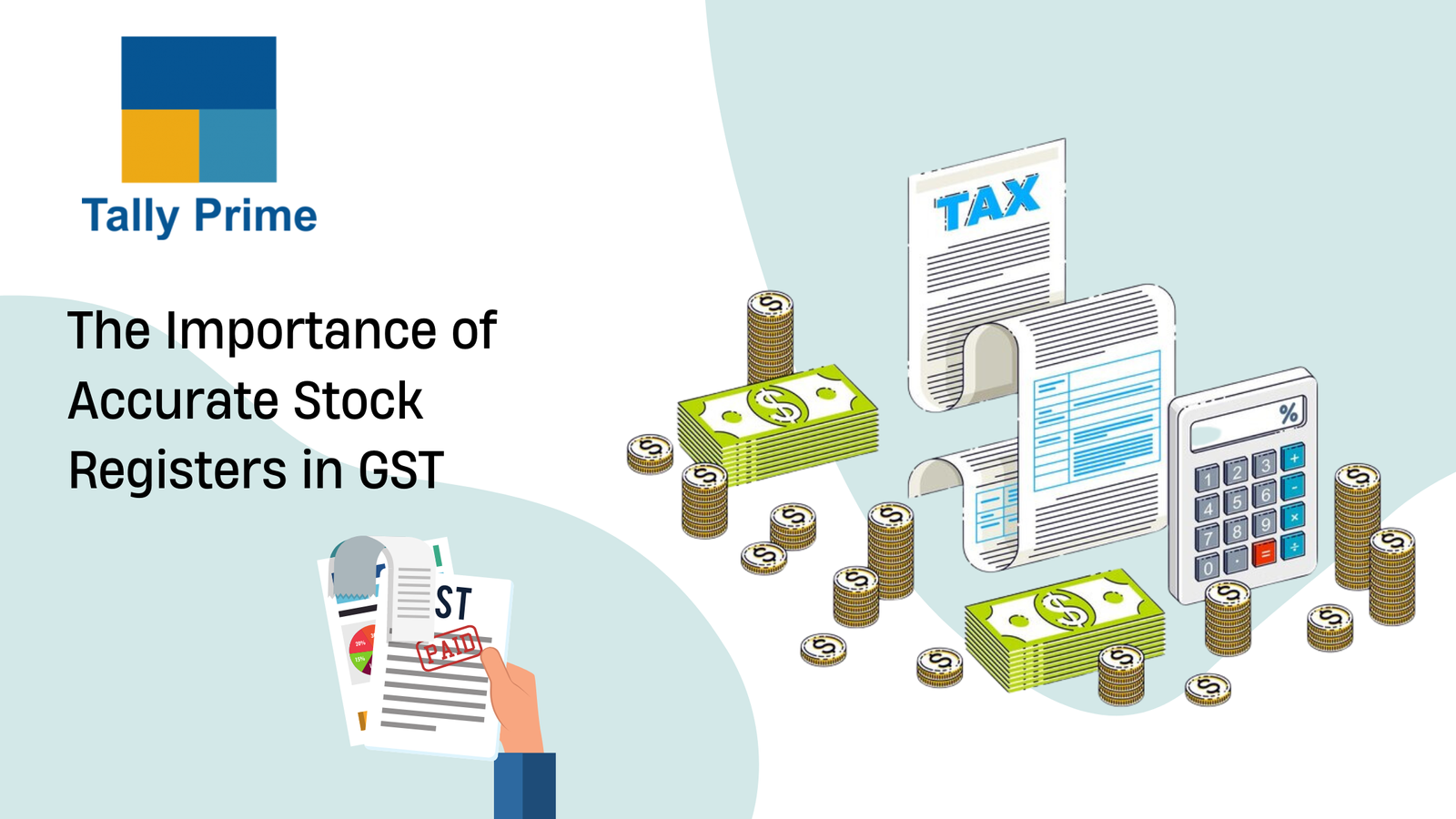I. Introduction
A. GST, or Goods and Services Tax, is a unified indirect tax system implemented in India to replace multiple taxes, streamlining the taxation process. It encompasses the taxation of goods and services at each stage of the supply chain, promoting efficiency, transparency, and ease of compliance for businesses and taxpayers.
A. A stock register is a comprehensive record that meticulously details all incoming and outgoing stock transactions within a business. It includes information such as quantities, values, dates, and descriptions of stock movements, serving as a vital tool for monitoring inventory levels, financial reporting, and ensuring regulatory compliance.
B. Under GST regulations, businesses are legally obligated to maintain accurate stock registers to document all incoming and outgoing goods. This requirement ensures transparency in transactions, facilitates proper tax assessment, and enables seamless compliance with GST laws. Failure to maintain these records may result in penalties and legal consequences for non-compliance.
C. Stock registers play a pivotal role in GST compliance by documenting the movement of goods, aiding in accurate tax calculation, and ensuring transparency in transactions. They serve as a vital record-keeping tool, helping businesses adhere to regulatory requirements, avoid penalties, and maintain integrity in their tax reporting under the GST regime.
III. Consequences of Inaccurate Stock Registers
A. Penalties for non-compliance with GST regulations can include hefty fines, suspension of GST registration, and even imprisonment in severe cases. Businesses failing to file returns, maintain proper records like stock registers, or evade taxes may face penalties ranging from financial repercussions to legal consequences, damaging their reputation and operations.
B. Inaccurate stock registers can lead to discrepancies in claiming Input Tax Credit (ITC) under GST. Failure to maintain accurate records may result in underutilization or denial of ITC claims, impacting cash flow and increasing tax liabilities. Precise stock data is crucial for maximizing ITC benefits and ensuring compliance
IV. Benefits of Accurate Stock Registers
A. Facilitating seamless audits and inspections involves maintaining accurate stock registers in GST, ensuring compliance and transparency. Detailed and up-to-date records enable auditors to easily verify inventory levels and transactions, streamlining the audit process. This minimizes disruptions to business operations and reduces the risk of penalties for non-compliance.
B. Ensuring transparency and accountability in business operations involves maintaining open and honest practices, where stakeholders have access to clear and reliable information. This fosters trust and confidence, reduces the risk of fraud or misconduct, and ultimately contributes to the long-term success and sustainability of the business.
C. Optimizing inventory management involves efficiently balancing stock levels with demand to minimize costs and maximize profitability. Accurate data from stock registers aids in identifying trends, forecasting demand, and making informed decisions regarding purchasing, production, and pricing strategies, ultimately enhancing overall business performance and competitiveness.
V. Best Practices for Maintaining Accurate Stock Registers
A. Robust inventory tracking systems encompass comprehensive software or procedures designed to meticulously monitor stock levels, movements, and transactions. These systems offer real-time visibility into inventory data, facilitating accurate record-keeping, minimizing errors, and enhancing efficiency in managing stock, ultimately ensuring compliance with GST regulations and optimizing business operations.
B.Reconciliation of physical stock with stock records involves comparing the actual inventory on hand with the recorded quantities in the stock register. This process aims to identify discrepancies, such as theft, errors in recording, or damage, ensuring accurate financial reporting and compliance with regulatory requirements like GST.
C. Utilizing technology for automated stock management involves implementing software solutions like inventory management systems and barcode scanners. These tools streamline stock tracking, reduce manual errors, and provide real-time insights into inventory levels. Automated processes enhance efficiency, accuracy, and compliance with GST regulations, ensuring seamless operations for businesses.
VII. Conclusion
A. Accurate stock registers are pivotal for GST compliance, ensuring transparency in inventory management and tax reporting. They enable businesses to claim rightful input tax credits, avoid penalties for discrepancies, and facilitate seamless audits. Proper maintenance of stock registers enhances regulatory adherence, fostering trust and credibility with tax authorities and stakeholders.
B. Accurate record-keeping is paramount for business success under GST regulations. It ensures compliance, enabling businesses to claim input tax credits and avoid penalties. Proper documentation facilitates transparent operations, aids in audits, and supports informed decision-making. Ultimately, it fosters trust with authorities and strengthens the financial foundation of the business.



